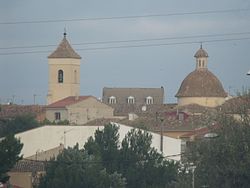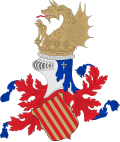This article needs additional citations for verification .(April 2024) |
Villargordo del Cabriel | |
|---|---|
 Villargordo del Cabriel | |
| Coordinates: 39°32′29″N1°26′28″W / 39.54139°N 1.44111°W | |
| Country | |
| Autonomous community | |
| Province | Valencia |
| Comarca | Requena-Utiel |
| Judicial district | Requena |
| Government | |
| • Alcalde | Lorenzo Guaita Albalata |
| Area | |
• Total | 71.6 km2 (27.6 sq mi) |
| Elevation | 850 m (2,790 ft) |
| Population (2024-01-01) [1] | |
• Total | 594 |
| • Density | 8.30/km2 (21.5/sq mi) |
| Demonym | Villargordeño/a |
| Time zone | UTC+1 (CET) |
| • Summer (DST) | UTC+2 (CEST) |
| Postal code | 46317 |
| Official language(s) | Spanish |
| Website | Official website |
Villargordo del Cabriel is a municipality in the comarca of Requena-Utiel in the Valencian Community, Spain.



